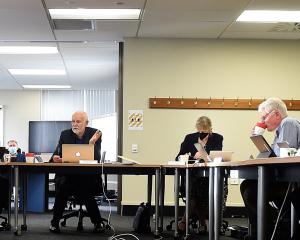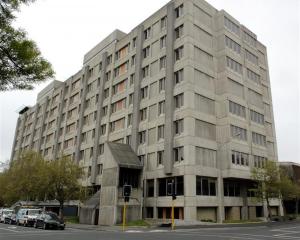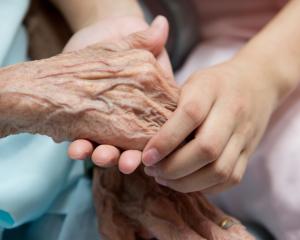Details have emerged from a nurses' meeting about concerns a lack of staff in Dunedin Hospital's neonatal intensive care unit (Nicu) could be harming patients.
The Southern District Health Board yesterday said it urgently investigated the concerns, and found no evidence for the claims about the unit.
A Dunedin Hospital nurse, who declined to be identified, and who does not work in the unit, said a Nicu nurse addressing the February 24 meeting said the unit was not always able to adequately care for newborns, because of a lack of staff.
This potentially compromised neonate oxygenation levels, which could harm patients.
There was also an unacceptably high central venous line sepsis rate in the unit, the nurse said.
''From the Nicu perspective, that person was with their colleagues, and certainly seemed to be supported.''
The meeting was attended by about 300 nurses, who put concerns about nursing staffing levels in Wakari and Dunedin Hospitals directly to management.
After the meeting, the New Zealand Nurses Organisation said hospital nursing in Dunedin was in crisis, but gave few specifics of how the situation affected patient care.
The meeting had been an ''impassioned plea to management to listen'', and it was too early to say whether it had worked, the nurse said.
''We're told they are [listening], but what people want is outcomes, and results, and change.
''My feeling is everybody's scrabbling round for answers, and nobody really knows what the answer is.
''We want to see leadership that has not only a way forward, but is able to garner the resources to actually pursue that way forward.''
The Nicu and the emergency department seemed to have the most acute problems.
In the ED, some patients were being left in the sole care of nurses, without medical assessment, for up to six hours.
''When the ED person presented, everybody who was there from that department stood up in solidarity.
''Every work area spoke, and [in] every work area it was just the same things being highlighted over and over again.''
The nurse said their own work area had not been greatly affected by cost-cutting, so ''for me [the meeting] was a bit of an eye-opener''. Nurses spent excessive time on record keeping and data entry, which did not improve patient care.
Conditions frequently breached the collective employment agreement, but the health board seemed unconcerned, the nurse said.
The nursing profession did not have the powerful status enjoyed by doctors, and thus nurses were not able to speak freely without risking their jobs.
Communications director Steve Addison said no evidence was found for the Nicu claims, which management had taken seriously.
Nursing and midwifery director Leanne Samuel said in a written statement the board's management had investigated a number of the issues raised, and would report back to nurses.
''I can assure you that the DHB is operating a safe and quality service for the community and we look forward to making ongoing continuous quality and patient safety improvements with our nursing and wider multi-disciplinary teams,'' Mrs Samuel said.












